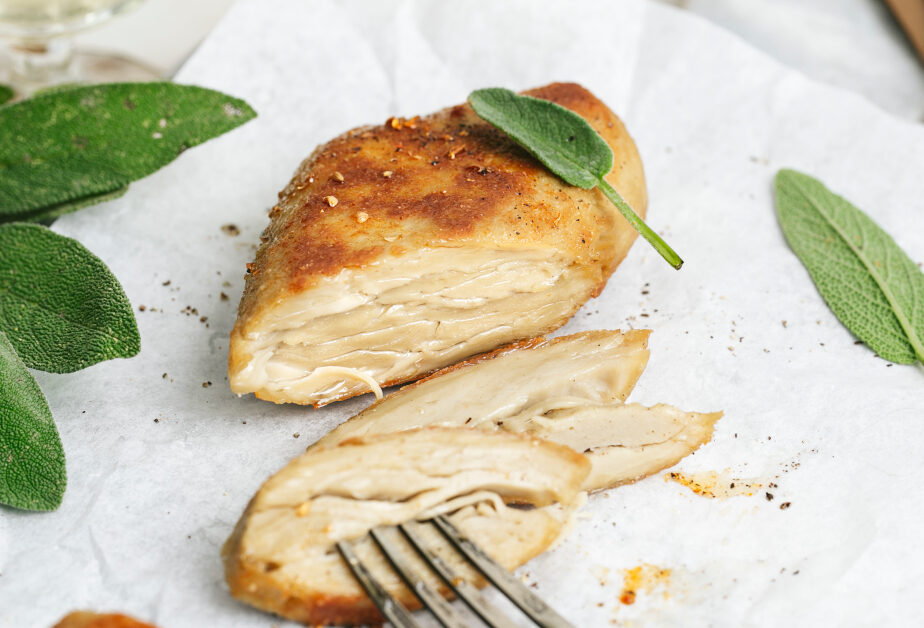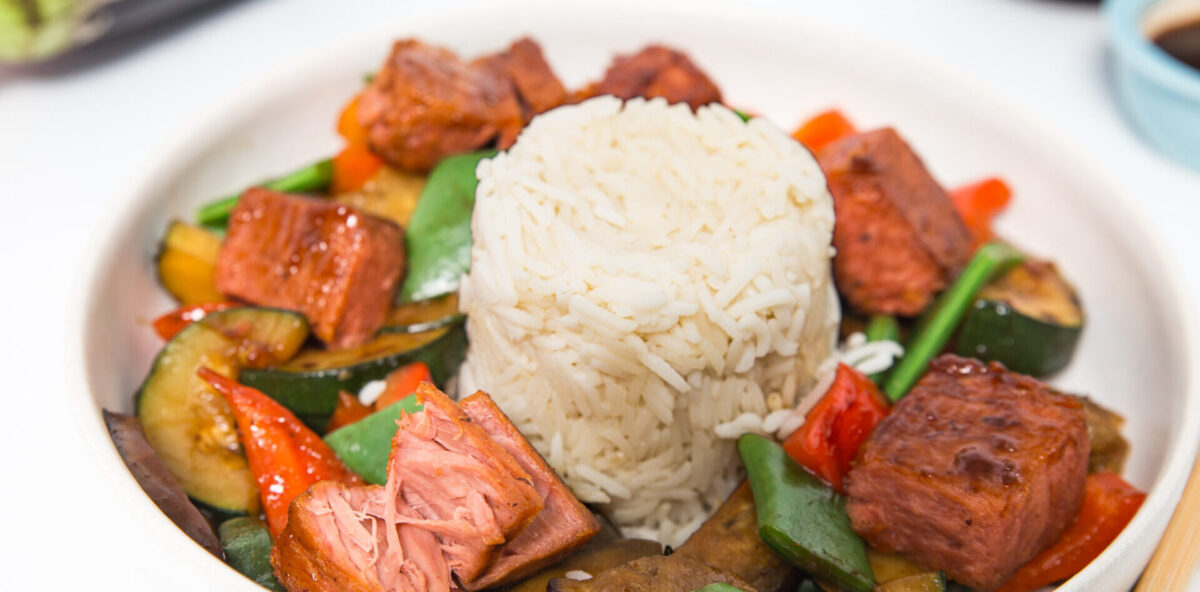Dutch startup Rival Foods has raised €10 million ($11.6 million) in a Series B round to expand its shear cell technology, a novel approach to texturizing plant-based proteins that can create whole cuts at scale.
The round was led by pension investor APG, on behalf of ABP, with participation from Pymwymic and ROM Utrecht Region, and follow-on investment from existing shareholder PeakBridge.
The capital injection will enable Rival Foods to double production capacity at its facility in Geldrop, hire new team members and support international growth, said Juri van Dolderen at ROM Utrecht Region.
“Rival Foods’ production technology is a game-changer. Its products are best-in-class while production process allows price parity with animal protein.”
“Real success in the alternative protein space demands tough things to master: great taste and texture, real nutrition, and competitive prices. We’re proud to see Rival Foods achieving all of them,” added Martina Pace, COO at PeakBridge.
Doubling production capacity
A spinoff from Wageningen University founded by Dr. Birgit Dekkers and Ernst Breel in 2019, Rival Foods supplies alt-chicken and beef whole cuts to restaurants in The Netherlands and Germany.
“We’ve also entered institutional catering, including schools, universities, and hospitals,” cofounder and CEO Birgit Dekkers told AgFunderNews. “Those are places where health and nutrition are paramount, and I think that’s really a testament to the quality of what we’re doing: zero additives, minimally processed, high protein, low saturated fat and salt.
“We recently launched our first retail product in collaboration with a branded food company, but we can’t share the name yet.”
The Series B funding will enable Rival Foods to double production capacity, she said. “We have a production capacity of several hundred tons a year, which is on track to double by early next year in our Geldrop facility. We’re doing it by placing the largest-ever shear cell unit next to our current unit. Our system—both existing and new—is modular and built for scalability, making it well-suited for phased capacity expansion aligned with market demand.”
 Image credit: Rival Foods
Image credit: Rival Foods
Heat + pressure
While shear cell tech deploys heat and pressure to make plant proteins behave more like animal proteins, it typically requires less energy than high-moisture extrusion cooking processes (where molten materials are forced through an opening and then cooled). It can also enable more precise control over the texture of the final product, claimed Dekkers. “Whereas extrusion is kind of a black box.”
Shear cell tech—which she describes as “like a pressure cooker with rotating parts”— can “recreate that really fibrous texture of meat protein, but can also create a flaky fish texture, if you vary the ingredients and processing conditions,” she added.
It also enables the production of larger ‘whole cuts’ of plant-based meat, without having to use binders to glue smaller pieces of plant-based meat together, said Dekkers, who believes whole cuts will eventually comprise a significant percentage of the alt meat category.
“Our technology supports a competitive cost structure compared to extrusion. Once in series production, the capital intensity per unit of capacity is lower, and the operational costs are significantly optimized. That enables strong gross margin potential and a clear path to breakeven within a few years, even at relatively moderate volumes.”
 Image credit: Rival Foods
Image credit: Rival Foods
Patent protection
The basics of shear cell technology, which is ideal for lean whole cuts containing up to 10% fat, according to Dekkers, “have been described in the scientific literature.” But this doesn’t mean anyone can deploy it at scale, she says.
“There are three patents for scaling this technology, two of which are owned by us,” says Dekkers. The third patent, which emerged from Plant Meat Matters, a partnership between Wageningen University and firms including Givaudan, Ingredion and The Vegetarian Butcher, is owned by Wageningen, and has been licensed to Rival Foods.
“The patent that came out of this consortium, we have the exclusive license on that until the end of 2027.”
B2b approach
Rival Foods is one of several players making whole cut meat alternatives, from Switzerland-based Planted to Slovenia-based Juicy Marbles [disclosure: AgFunderNews’ parent co AgFunder is an investor]; Netherlands-based Redefine Meat; Israel-based Chunk Foods; Indonesia-based Green Rebel Foods; Germany-based Project Eaden; US-based MyForest Foods, Meati Foods, and OffBeast [disclosure: AgFunderNews’ parent co AgFunder is an investor]; France-based SWAP Food; and Spain-based Novameat.
Unlike most of the players above, Rival Foods is not looking to build a consumer brand, however, says Dekkers, who is adopting a b2b approach.
Stepping back to look at the segment as a whole, she said: “Over the years, products have become significantly better, but we have to work together with the entire industry to entice consumers to the shelves. What we also see is that when making plant-based the default in out-of-home markets, consumers really enjoy our products and don’t have to make a conscious decision [to go plant-based].”
According to Dekkers: “People rightly demand good taste and texture and reasonable prices and they don’t want ingredient lists they can’t understand. Those are exactly the areas we’ve zeroed in on with our technology. We also meet the growing demand for clean label, healthy products with high protein, low saturated fat and salt, and no additives. Those key factors make our proposition more relevant than ever.”
The post Rival Foods raises $11.6m Series B to scale shear cell tech for plant-based whole cuts appeared first on AgFunderNews.